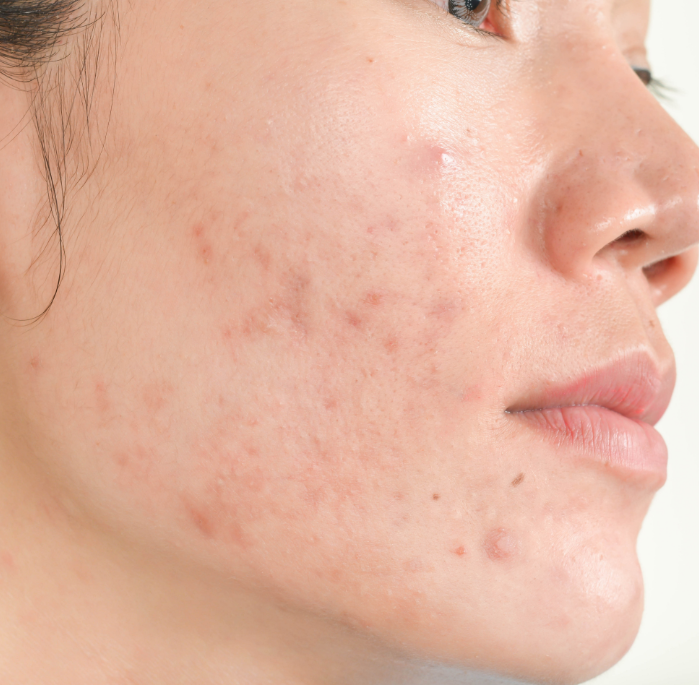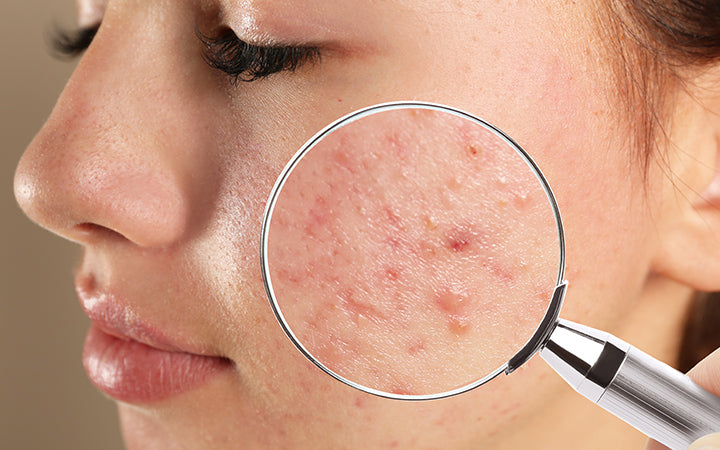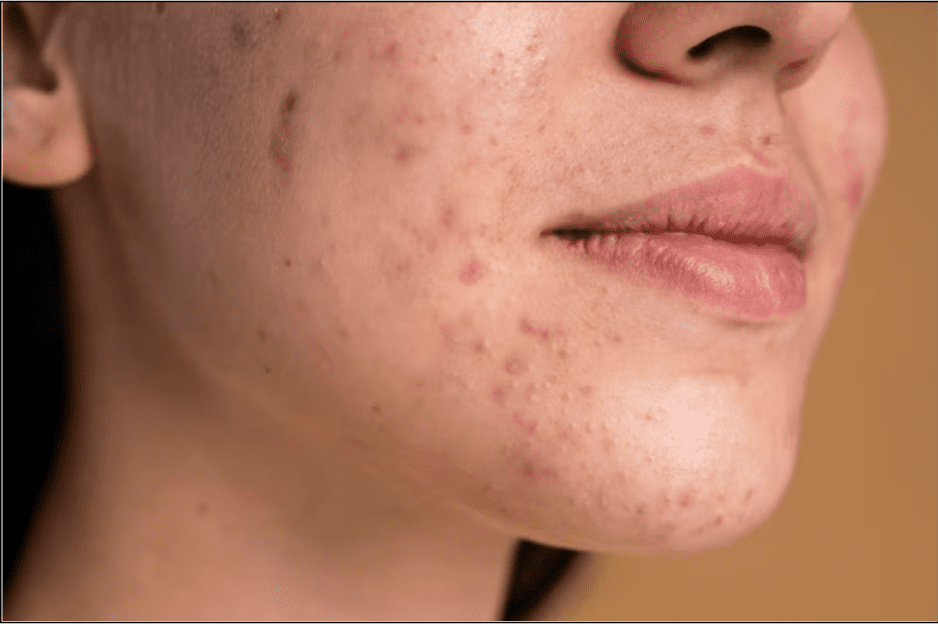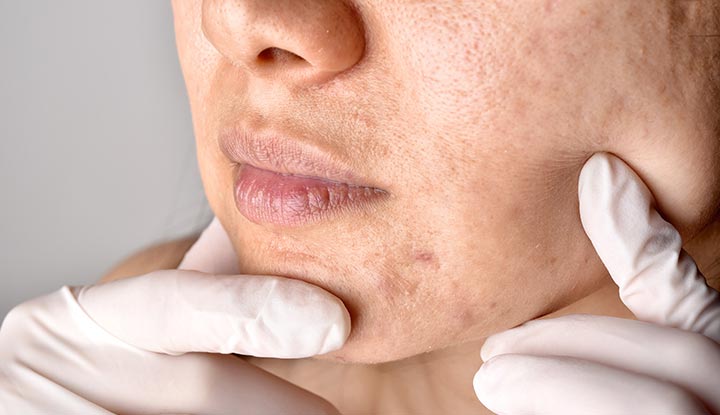Pores are tiny openings on our skin that play an essential role in maintaining its health. These natural openings are responsible for releasing sweat, oil, and other substances from the body. While everyone has pores, they can behave differently depending on various factors, such as skin type, environmental conditions, and daily habits. For some individuals, clogged pores can be a frequent problem, leading to skin issues like acne or blackheads.
Pores are vital for our skin’s function, as they help regulate temperature and maintain moisture balance by allowing sweat to evaporate. They also release sebum, a natural oil produced by the sebaceous glands, which helps keep the skin moisturized and protected from external elements. However, when pores become clogged with excess oil, dead skin cells, dirt, or other debris, they can cause various skin concerns.
Clogged pores are a common issue that many people experience at some point in their lives. They occur when the opening of the pore becomes blocked by substances that normally flow out of the skin. When the sebaceous glands produce an overabundance of oil, combined with a build-up of dead skin cells or external dirt, this mixture can block the pores, leading to various skin issues, including pimples, blackheads, and whiteheads. These clogged pores can also create a breeding ground for bacteria, which further exacerbates the problem.
Some people may be more prone to clogged pores due to factors like oily skin, hormonal fluctuations, or certain lifestyle habits. Individuals with oily skin, for instance, tend to produce more sebum, which can accumulate in the pores and lead to blockages. Hormonal changes, such as those that occur during puberty, menstruation, or pregnancy, can also trigger increased oil production, making it more likely for pores to become clogged. In addition, poor skincare habits, such as not properly cleansing the skin, using the wrong products, or touching the face frequently, can contribute to the build-up of oil and debris in the pores.
While clogged pores are common, they can often be prevented or treated with the right skincare routine. The key to preventing clogged pores is to keep the skin clean and clear of excess oil and impurities. A gentle cleansing routine that removes dirt, makeup, and excess oil without stripping the skin of its natural moisture is crucial. It’s important to avoid harsh scrubbing, which can irritate the skin and actually worsen pore congestion.
Exfoliating regularly can also help prevent clogged pores. Exfoliation removes dead skin cells that can accumulate on the skin’s surface, helping to keep the pores clear and smooth. However, it’s essential not to over-exfoliate, as this can cause irritation and lead to even more problems. Choosing a mild exfoliant or chemical exfoliator, such as those containing salicylic acid, can be effective in clearing pores without causing damage to the skin.

In addition to cleansing and exfoliating, using products that are designed to target clogged pores can be helpful. Many skincare products are formulated with ingredients that specifically address excess oil, impurities, and pore congestion. For example, products containing benzoyl peroxide or salicylic acid are known for their ability to penetrate the pores and reduce blockages. These ingredients can help keep pores clear and prevent the formation of acne and blackheads.
For individuals with oily or acne-prone skin, incorporating oil-free or non-comedogenic products into their skincare routine is important. These products are designed to avoid clogging the pores and can help balance the skin’s oil production without adding extra oil. Oil-free moisturizers, sunscreens, and makeup products can be a great option for those prone to clogged pores.
While clogged pores can occur for a variety of reasons, there are also environmental factors that can contribute to the problem. For example, exposure to pollution, dust, and other environmental pollutants can lead to the build-up of debris on the skin’s surface, which can clog the pores. In addition, hot and humid weather can increase the skin’s oil production, making it more likely for pores to become clogged. To combat these factors, it’s important to protect the skin from environmental stressors by using a good sunscreen and cleansing the skin thoroughly at the end of the day.

One of the most common issues that result from clogged pores is acne, which occurs when the pores become blocked and inflamed. Acne can range from mild blackheads and whiteheads to more severe cystic acne, which can be painful and difficult to treat. Managing acne caused by clogged pores often requires a consistent skincare routine, which may include acne-fighting ingredients like salicylic acid, benzoyl peroxide, or retinoids. For more severe cases, it may be necessary to consult a dermatologist for professional advice and treatment options.
Another common issue related to clogged pores is blackheads, which form when a pore becomes clogged with oil and dead skin cells. The top of the pore becomes exposed to air, causing the contents inside to oxidize and turn dark, resulting in a blackhead. Blackheads are most commonly found on the nose, chin, and forehead, but they can appear anywhere on the face or body. Regular cleansing, exfoliating, and using pore-clearing treatments can help reduce the appearance of blackheads and prevent them from forming in the first place.

For those dealing with clogged pores, it’s important to remember that everyone’s skin is different, and what works for one person may not work for another. Experimenting with different products and finding a routine that works for your skin type is key. If clogged pores and related skin issues persist despite your best efforts, it may be helpful to seek the guidance of a skincare professional or dermatologist who can offer personalized advice and treatment options.
In conclusion, while pores are a natural and essential part of the skin, clogged pores can be a source of frustration for many people. By maintaining a consistent skincare routine that includes proper cleansing, exfoliating, and using the right products, it’s possible to prevent and treat clogged pores. Understanding the causes and taking proactive steps to address them can help keep your skin clear, healthy, and glowing.

